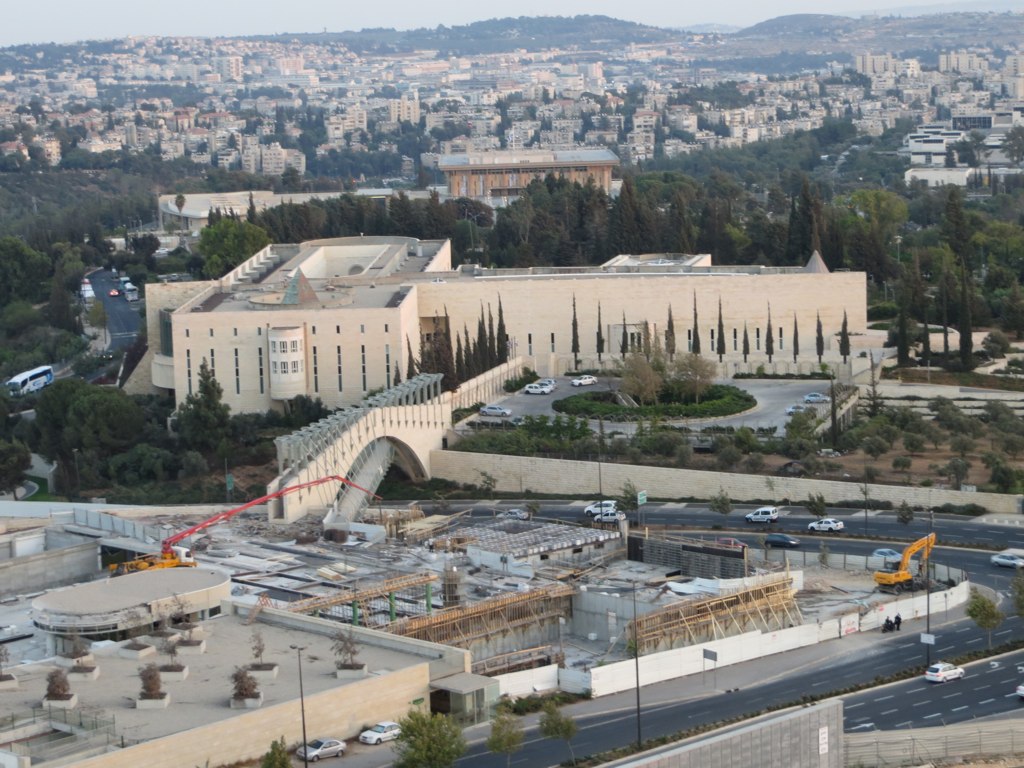In June 1992, with the defeat of Israel’s Likud government and the ascension of the Labor Party to power, the Palestine Liberation Organization, an outlawed terrorist organization in a state of total war against Israel, raised its profile and initiated illegal contacts with the Labor Party.
At the time, I worked as the Jerusalem correspondent for CNN radio, with access to high-level contacts in the Israeli and U.S. governments. Thus, I was in a position to confirm that the Bush administration and subsequently the new Clinton administration laid out policy directives mandating that Israel was required to follow up on these PLO contacts, described by the U.S. government as a PLO peace initiative.
Sources in the Israeli security establishment and the Likud opposition in the Knesset raised objections to the U.S. pressure. It was at exactly this time that Aharon Barak became chief justice of the Israeli Supreme Court.
In 1992, Barak established a precedent that threw out all legal objections to what would become the Oslo peace process.
The Court also did not object to the Israeli government’s decision to free hordes of PLO felons who had been convicted of murder or attempted murder. Over the previous 30 years, families of victims murdered by these felons had appealed to the Court to file motions against releasing them, citing the government’s failure to apply any system of recidivism verification to determine whether these felons were likely to repeat their crimes. All this was to no avail. Israel has thus far freed at least 9,000 of these felons.
Another central feature of U.S. Middle East policy beginning in 1992, adopted by the Israeli government and echoed by Israel’s courts, was the delegitimization of the civil liberties and property rights of Jews who live in Judea, Samaria and even Jerusalem—as well as, until 2005, Gaza.
For 30 years, the Israeli Supreme Court tossed out numerous cases in which Jews in Judea, Samaria and Jerusalem sued for these rights.
The most egregious decisions of the Barak Court concerned the plight of Jews expelled from their homes in Gush Katif and Samaria in 2005. The harsh reality was that the Israeli government was not prepared to provide for 1,700 families evicted from their homes in the 21 Jewish communities of Gush Katif. On the eve of the expulsions, attorney Yitzhak Meron provided sobering evidence of the failures of Ariel Sharon’s government in this regard.
Dr. Meron was a senior member of the Israel Legal Forum, an organization of 50 Israeli lawyers that worked pro bono during the period leading up to the expulsion to ameliorate the difficulties of the Gush Katif residents, presenting their case to the Knesset and the courts.
The government’s approach to the settlers, according to Dr. Meron, was “aggressive” from the very beginning, with a lack of direct communication.
The prime minister never went to “look in their eyes” and ministers in the government who voted for expulsion did so without having visited the communities whose fate they were deciding. When the defense minister finally traveled to Gush Katif to meet with residents there on April 19, 2005, he refused to answer questions. I witnessed that refusal.
Three days before the expulsion was to begin, the government announced that 1,000 rooms had been rented and everyone would have somewhere to stay. The reality was that 2,500 rooms were required due to large families. Officials had to scour Israel, seeking rooms at the last moment. The Forum assisted in this emergency action. People left their homes not knowing where they were going to go. No social workers were sent by the government to help people cope logistically or psychologists to help with trauma.
Because the government ordered thousands of people removed from their homes, it was obligated to provide satisfactory alternative housing. However, that took 10 to 15 years, without any objection from the courts.
I was present when Aharon Barak rejected the final appeal before the Gush Katif expulsions. Dr. Meron, speaking on behalf of the Gush Katif community, appealed to Barak to consider the justice of their case. These “settlers” were resigned to the expulsion and, in the end, only asked for a relocation process to be implemented.
Barak turned to the government attorney and asked whether the government had a plan to resettle the communities. When the attorney responded vaguely that the government would take care of everything, Barak smiled, thanked him and gave the order for bulldozers to begin demolition.
When the U.S. announced its policy of demanding the removal of Jews from Judea, Samaria and the Old City of Jerusalem, a delegation of U.S. citizens who lived in those communities approached the U.S. Consul in Jerusalem Philip Wilcox and asked about the human rights of Jews in these communities. Wilcox responded with a single sentence that echoed around the world: “If you live there, you have no human rights.”
There was silence in the room. Wilcox then asked participants if they would like coffee or tea.
The legacy of Philip Wilcox lives on in the Foundation for Middle East Peace, which finances 40 organizations that support the PLO and advocate for the continuing expulsion of Jews from their homes.
Thus, the Israeli Supreme Court paved the way for the PLO to gain land and power in the heartland of Israel.
Yet the PLO openly refuses to endorse a two-state solution. In the words of retired MK Benny Begin, “The PLO wants a two-stage solution, not a two-state solution.”
Thanks to the Israeli Supreme Court, the PLO is getting away with it.


























